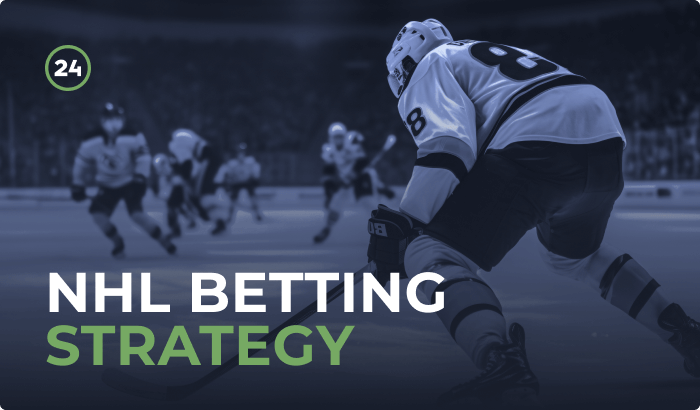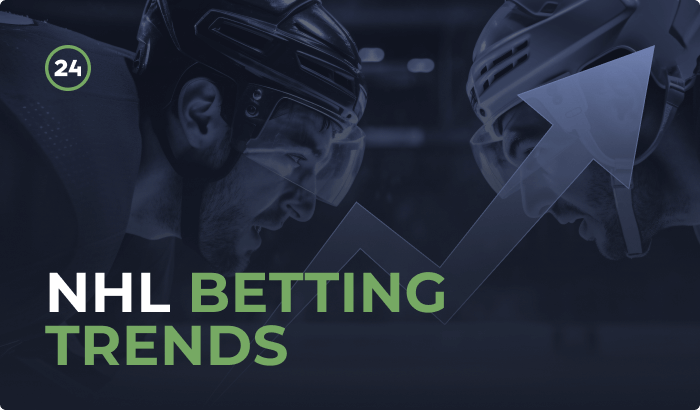The Best Way to Bet on Sports: Tips and Strategies Professionals Use

Sports gambling can be a profitable pursuit, yet it requires skill, knowledge, and a solid strategy. This guide aims to equip you with the professional sports betting strategies employed by veteran bettors. When you are eager to stake money on football, baseball, or hockey, you may first want to understand the nuances of betting systems and approaches. Proper knowledge can make a big difference in your success.
Understanding Sports Gambling
“How to bet and win?” is a question that puzzles both enthusiast sports lovers and experienced gamblers. Before we delve into specific strategies, let's briefly define what sports gambling is. It basically requires you to predict the outcomes of sporting events and gamble money on those predictions. Because of its complexity, many beginners find themselves overwhelmed. Therefore, the first step in becoming a successful bettor is to educate yourself.
Why Strategy Matters
Strategies are highly important in sports gambling because they provide structure to your decisions. Without a plan, you may gamble impulsively and quickly deplete your bankroll. Experienced punters employ various tactics, ensuring each choice undergoes a thorough estimation before sealing a deal. A meticulous attention to detail and in-depth research of the teams, players, and the overall context of each competition are what distinguish professionals from recreational enthusiasts.
Top Professional Strategies to Gamble on Sports
Sports wagering methods are countless. Here, we’ll review the most efficient strategies professionals employ, helping you to learn how to bet on sports successfully.
Line Shopping
One of the best ways to get the most value from your wagers is line shopping. This means comparing the odds across multiple sportsbooks. Different bookmakers may have varied lines for the same game or event. By finding the optimal odds, you will maximize potential profits. It may seem tedious, but this practice can greatly elevate your gambling game.
Zig-Zag Theory
The Zig-Zag theory analyzes historical data to identify trends where a team's performance alternates between victories and losses. By spotting these patterns, punters can forecast that a team is due for a win after a losing streak or vice versa. The theory assumes that team performance is cyclical and not entirely random. This may allow for intelligent predictions based on past trends.
To apply this theory, you need to track a team's recent performance, noting the length and frequency of winning and losing streaks. Once you recognize a pattern, you can anticipate a team's upcoming performance based on its position in the cycle. For example, if a team has lost their last three games, the Zig-Zag theory suggests they are more likely to win their next match.
Middle Betting
Middle betting involves placing wagers on both sides of a sporting event, exploiting the difference in odds offered by different bookmakers. You back the underdog with one bookmaker and the favorite with another, hoping the final score falls within the "middle" created by the two spreads. If the outcome falls within that range, you win both bets and collect a profit.
Arbitrage
Arbitrage betting involves simultaneously placing bets on all possible outcomes of an event across multiple bookmakers. The key is to find discrepancies in odds where the total implied probability across all outcomes is less than 100%. By carefully calculating the appropriate stake for each selection, you can guarantee a profit regardless of the final result. This essentially creates a risk-free profit opportunity, though it requires quick action and often involves very small profit margins.
Hedging
Hedging relates to placing a second bet on an opposing outcome to minimize potential losses or guarantee a profit. It essentially creates a safety net regardless of the final result. This strategy is most effective when applied to uncertain outcomes or when a user has a strong belief in one outcome but wants to limit risk.
Remove the Vig
The "vig" is the commission charged by sportsbooks, literally a charge for facilitating wagers. To reduce this cost, you can find operators with lower commissions, use arbitrage opportunities to exploit price differences, and make use of free bets and promotions to curtail the financial impact of the vig.
KenPom
KenPom is a college basketball rating system that uses a complex formula to assess team strength. It focuses on factors, like offensive and defensive efficiency, adjusted tempo, and opponent strength. This allows you to compare teams regardless of their conference or schedule, giving you a better idea of their true ability. By understanding KenPom ratings, you can identify undervalued teams that may be favored to win or uncover overvalued teams ripe for an upset.
Sagarin
Sagarin ratings are a more traditional system that focuses on game results. They assign points to each team based on wins and losses, adjusted for strength of schedule. It is simpler than KenPom. Yet, Sagarin can be valuable for identifying teams performing above or below expectations based on their results. By combining Sagarin ratings with other factors, like injuries or home-court advantage, you can make more informed choices about which competitors to back.
Kelly Criterion
The Kelly Criterion is a formula used by skilled sports gamblers. It calculates the optimal wager size to improve your prospects of earning a payout. It considers your edge (the probability of winning minus the probability of losing) and the odds offered by a bookie.
The formula is: (b*p - q)/b, where 'b' is the decimal odds, 'p' is the probability of winning, and 'q' is the probability of losing. To use it, simply plug in your estimated edge and odds, and the result will be the fraction of your bankroll you should stake. For example, if your edge is 5% and the odds are 2.00, the Kelly Criterion suggests staking 2.5% of your bankroll.
Live Betting Tips
As a sports lover, you may be interested not only in pre-match wagers but also in those that can be placed in the middle of an action. Live betting enables you to place predictions while the competition is going on, based on real-time information. Here are some tips to make the most of live betting:
- Stay Informed. Follow the game closely. Understanding momentum shifts can help you spot valuable opportunities.
- Look for Mistakes. Bookmakers may misjudge how events unfold in real-time. If you feel there’s been an exaggerated line movement, it could be a gamble worth exploring.
- Have a Plan. Plan your movements ahead of time. Decide which situations will encourage you to place a wager, such as if a favored team falls behind in score.
- Focus. Don’t gamble on every game or every player. Concentrate on events where you have the most information and insights.
- Use Live Streaming. If your bookie offers live streaming, use it to your advantage. Watching the rivalry live will give you a much better understanding of the situation and can help you make more intelligent decisions.
Betting Systems for Fruitful Wagers
Seasoned users often rely on established betting systems to guide their strategies. Here's a glimpse at a few notable ones:
Martingale System
The Martingale system is simple yet risky. Its principle is to double your stake after a loss. The idea is that upon winning, you’ll recover all previous losses plus a profit equal to the original stake. However, substantial risk exists with consecutive losses that could drain your bankroll.
D'Alembert System
D'Alembert is a sports gambling strategy where you increase your stake by a fixed amount after a loss and decrease it by the same amount after a win. It aims to slowly recover lost funds while limiting potential losses. Note that this path may lead to remarkable losses if you experience a long losing streak.
Poisson Distribution Strategy
The Poisson distribution predicts how often an event will occur in a given timeframe. In sports wagering, it can help guess the number of goals, points, or other events in a game. By comparing the predicted outcomes with the odds offered, you can find value bets where the odds are higher than the likelihood of the event happening.
Fibonacci System
This tactic employs the Fibonacci sequence, where each number is the sum of the two preceding ones (e.g., 1, 1, 2, 3, 5, 8). After a loss, your next bet is the sum of the previous two bets. After a win, you revert two steps back in the sequence. This system aims to minimize losses while still allowing for potential wins.
Flat Betting
Flat betting is a beginner-friendly strategy where the same amount of money is wagered on each selection, regardless of odds or potential rewards. Such a scheme requires no complex calculations or adjustments. This makes it perfect for rookies or those who prefer a less stressful approach to gambling. Yet, the overall profit potential is much lower compared to other schemes that adjust bets based on odds or team performance.
How to Bet on MLB (Major League Baseball)
MLB is the highest professional baseball league in the United States and Canada. It's made up of 30 teams divided into two leagues, the American League and the National League. Every year, they play a long season to determine the champion, with the World Series being the ultimate championship game. Here are some proven sports betting strategies for this exciting American sporting tradition:
- Study Pitcher Performance. In MLB, the starting pitcher has a significant impact on the outcome of the game. Analyze their stats, such as ERA, WHIP, and strikeout rates, to assess their potential performance.
- Consider Weather Conditions. Baseball is incredibly sensitive to the elements. A heavy downpour or a strong wind can drastically impact both offensive and defensive performance. Studying weather forecasts, especially in the days leading up to a match, can provide an edge.
- Track Bullpen Usage. Understanding how teams utilize their bullpen can give you an edge. Look at pitching rotations and bullpen statistics to predict how relievers may impact the game.
- Home vs. Away Performance. In the MLB, home teams often have a serious edge. Understanding the nuances of ballpark dimensions and crowd effects can play a crucial role in choosing the right side.
- Over/Under Wagers. Instead of focusing solely on the winner, consider over/under bets on total runs scored. Analyze factors, like ballpark dimensions, pitching matchups, and hitting trends, to make informed predictions.
How to Bet on NFL (National Football League)
The NFL is America's most popular professional sports league, featuring 32 teams competing for the Super Bowl championship. It's a gridiron football league known for its intense competition, passionate fans, and insane contracts for top players. Here are five insightful tips to help you bet on NFL games like a pro:
- Study the matchups. A team's performance is heavily influenced by who they're facing. Analyze the strengths and weaknesses of each squad, and look for potential mismatches that may favor one side.
- Factor in injuries. A key player missing can take a toll on a team's capabilities. Keep track of injury reports and their potential effect on the game.
- Consider the weather. Wind and precipitation can dramatically affect the game, especially in outdoor stadiums. Research the forecast and how it may shape the gameplay.
- Analyze the offensive and defensive schemes. Each team has its own unique style of play, so study their offensive and defensive strategies. Identify weaknesses and how they may be exploited.
- Don't get caught up in the hype. The media and public opinion often create a buzz around certain games. Make your own judgment based on objective analysis and avoid letting emotional bias cloud your decisions.
How to Bet on NHL (National Hockey League)
The NHL is the premier professional ice hockey league in North America. It consists of 32 teams across the United States and Canada, playing a regular season from October to April, followed by playoffs to determine the Stanley Cup champion. Here are a handful of professional approaches to ice hockey gambling:
- Special Teams Dominance. Keep a close eye on power play and penalty kill statistics. Teams with strong special teams units can considerably affect the conclusion of a contest. Look for teams with high power play percentage and low penalty kill percentage.
- Puck Possession and Shots on Goal. The team that controls the puck and generates the most shots on goal typically has a better chance to score. Look for teams with a high Corsi For percentage (CF%), which represents the ratio of shots taken by a team to shots taken against.
- Goalie Performance. A standout goalie can steal a win for their team. Pay attention to save percentages (SV%) and goals against average (GAA). A goalie with a high SV% and low GAA is a sign of strong skills.
- Home Ice Advantage. The NHL is a league where home ice advantage matters. Teams tend to play better in their own arenas, leading to more wins. Factor in the home team's recent performance and historical home records when making your picks.
- Fatigue and Back-to-Backs. Teams playing on consecutive nights are more likely to struggle, especially when traveling. Look for squads playing their second game in a row, especially if they're on the road. This could be a factor in their overall efficiency and game outcome.
Avoiding Typical Pitfalls
Even accomplished bettors can stumble. Here’s how to avoid some common mistakes when gambling on sports:
- Chasing Losses. This age-old trap leads many users down a dangerous path. Never chase losses with reckless bets, as it can quickly spiral out of control. Remember, a winning strategy requires patience and discipline.
- Overconfidence. A string of successful wagers can fuel an inflated sense of invincibility. Stay grounded, resist the temptation to overextend your bets, and remember that luck is fickle.
- Neglecting Bankroll Management. Healthy bankroll management is the cornerstone of responsible gambling. Set a budget before you start and adhere to it, even when you’re on a hot streak.
- Falling for "Sure Things." Be wary of so-called "locks" or "guaranteed" bets. No prediction in sports is truly guaranteed, and even seemingly obvious outcomes can be upset.
- Ignoring Line Movements. Changes in betting lines often provide valuable insights into how sportsbooks and other users perceive a match. Staying aware of these shifts can help you identify potential value bets.
- Focusing Solely on the Favorites. While favorites often win, they rarely offer lucrative odds. Explore the value of betting on underdogs, who may have a higher potential payout despite a lower chance of victory.





